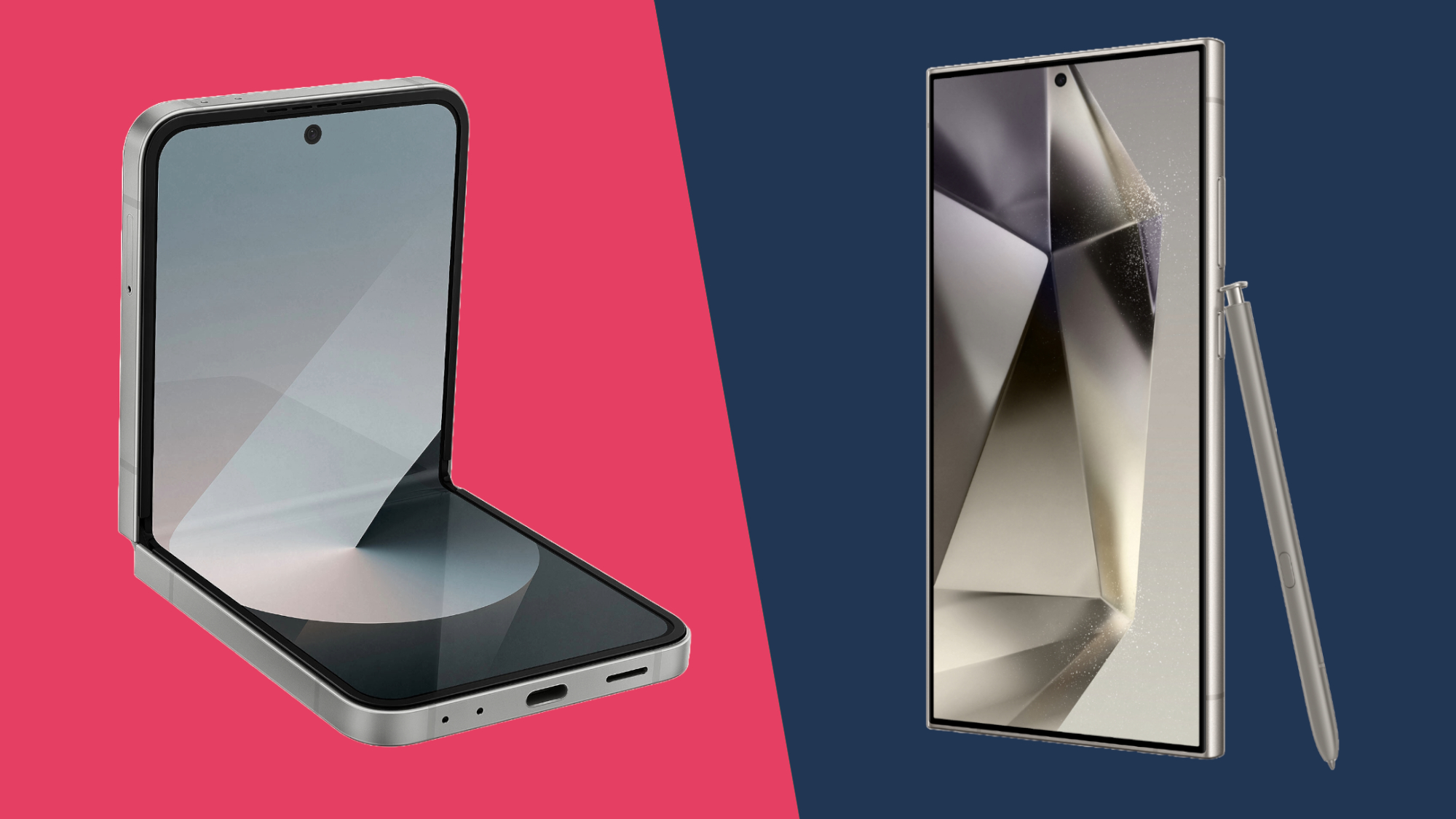
The Samsung Galaxy Z Flip 6 boasts strong performance, great software, and class-leading portability, but it's dwarfed by the Galaxy S24 Ultra in the camera and battery life departments.
For
- Impressive main display
- Powerful performance
- Galaxy AI is pretty good, and getting better
Against
- Lacks innovative cover-display capabilities
- Battery life is below average
- IP48 protection does not mean it’s dust resistant
The Galaxy S24 Ultra has a more rugged design, a better screen, a superior camera set-up, and far more impressive stamina than the Galaxy Z Flip 6, but it loses out on the latter's display-related versatility.
For
- Great cameras
- Titanium frame
- Very powerful
Against
- AI features are no longer exclusive
- Big and heavy
- Terrible menus
With the release of the Samsung Galaxy Z Flip 6 (and its big brother the Galaxy Z Fold 6), Samsung’s flagship line-up for 2024 is complete. So, how does it match up to the Samsung Galaxy S24 Ultra, Samsung’s traditional smartphone champ?
We’ll state right at the outset that this isn’t strictly a like-for-like comparison. The Galaxy Z Flip 6 is a regular-sized smartphone that folds up into a more compact form factor, while the Galaxy S24 Ultra sets out to give you the optimal traditional smartphone experience, cranking all the dials up to 11.
With that said, they’re both smartphones, and they broadly do much the same things in exchange for a fair chunk of money. They call, they message, they access apps, they take pictures, and they play media.
So, how do these two Samsung phones compare? Would we recommend one over the other for most people? We’ve reviewed both phones and tested their respective features extensively, so here’s our definitive verdict.
Samsung Galaxy Z Flip 6 vs Samsung Galaxy S24 Ultra: specs comparison
Let’s take a quick look at the key specs of these two Samsung phones before we dive into the finer details.
Samsung Galaxy Z Flip 6 vs Samsung Galaxy S24 Ultra: price and availability
The Galaxy Z Flip 6 hit shops on July 24, 2024 in the US and UK, and on July 31 in Australia. That’s about a six month gap to the Galaxy S24 Ultra, which landed on January 31.
When it comes to pricing, the Samsung Galaxy Z Flip 6 is the cheaper of the two phones. It starts at $1,099.99 / £1,049 / AU$1,799 for the model with 12GB of RAM and 256GB, while 12GB/512GB costs $1,219 / £1,149/ AU$1,999.
As for the Galaxy S24 Ultra, you’ll need to stump up $1,299 / £1,249 / AU$2,199 for 256GB of storage, while the 512GB model will set you back $1,399.99 / £1,399 / AU$2,549. There’s also a 1TB model that costs $1,659.99 / £1,549 / AU$2,799.
Essentially, then, you’re looking at a $200 / £200 / AU$400 premium for the older Galaxy S24 Ultra. Let’s take a look at why that might be.
Samsung Galaxy Z Flip 6 vs Samsung Galaxy S24 Ultra: design
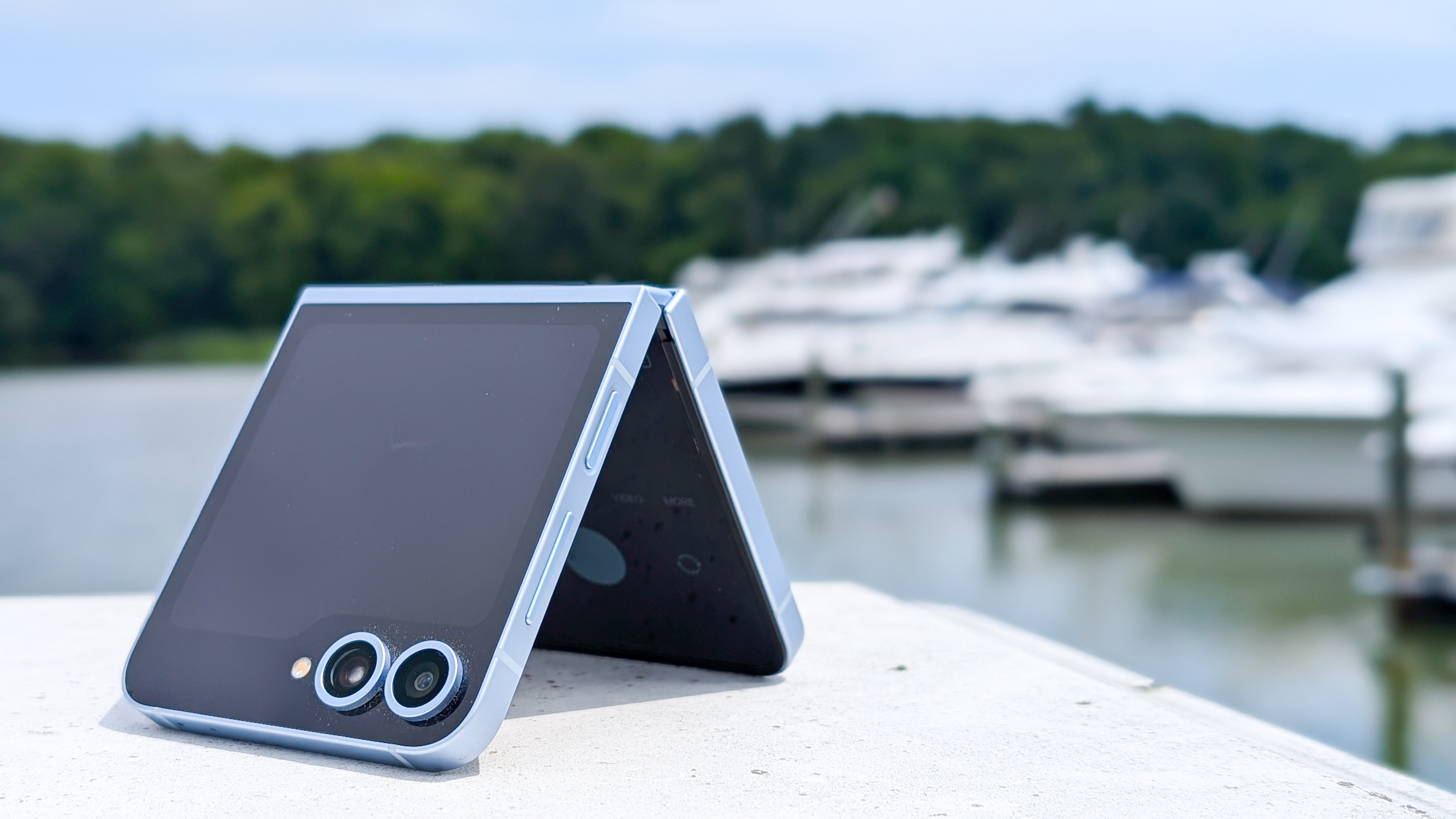
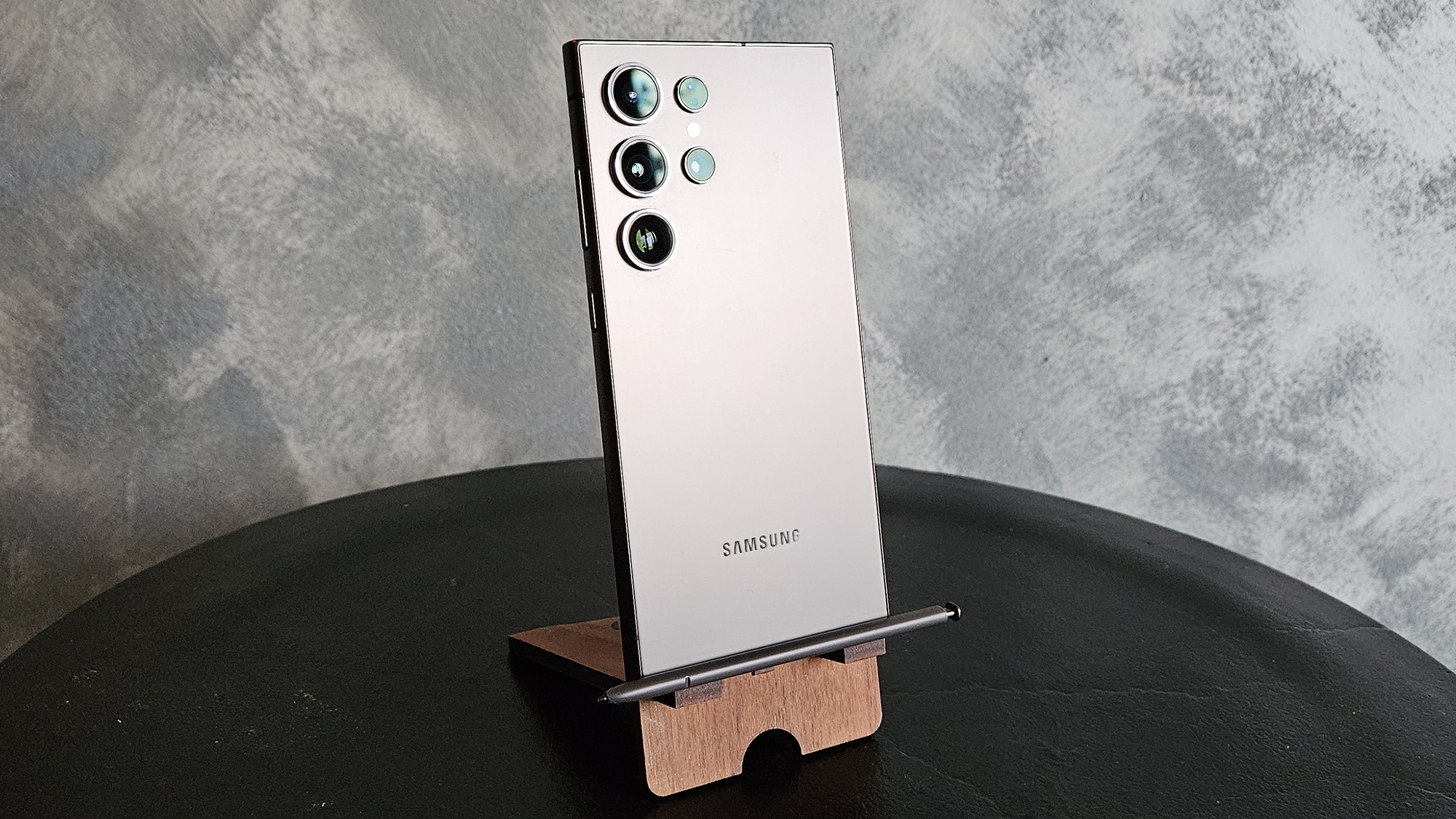
As we mentioned at the outset, these two phones are built fundamentally differently. One is designed to disappear into your pocket, while the other is intended to hold your undivided attention and occupy both hands.
The Galaxy Z Flip 6 comes out of the box as a relatively normal-looking smartphone, but it’s one that can be folded in half to form a neat little square package. It’s very pocketable in this form, but even when open, it measures a pretty slight 165.1 x 71.9 x 6.9mm, with a weight of just 187g.
The Galaxy S24 Ultra is way stockier than its flippy cousin, measuring 162.3 x 79 x 8.6mm and weighing 232g. What it lacks in portability, it makes up for with extra ruggedness. As well as packing a tougher titanium frame (the Flip 6 frame is aluminum), the Galaxy S24 Ultra also has a tougher Corning Gorilla Armor glass on the front and back. The Flip 6 gets by with inferior (but far from bad) Gorilla Glass Victus 2.
You also get a superior IP68 rating with the Ultra. This means it’s far more dust-resistant than the IP48-rated Flip 6.
There’s a basic difference to the design language too. The Galaxy S24 Ultra has a flat top and bottom edges, slightly rounded sides, and pointed corners. The Galaxy Z Flip 6, by contrast, gives you a dead-flat frame with rounded corners. As we noted in our review, it kind of feels like the Flip wants to be an iPhone, while the Galaxy S24 Ultra sticks with its own slab-like design language.
Samsung Galaxy Z Flip 6 vs Samsung Galaxy S24 Ultra: displays
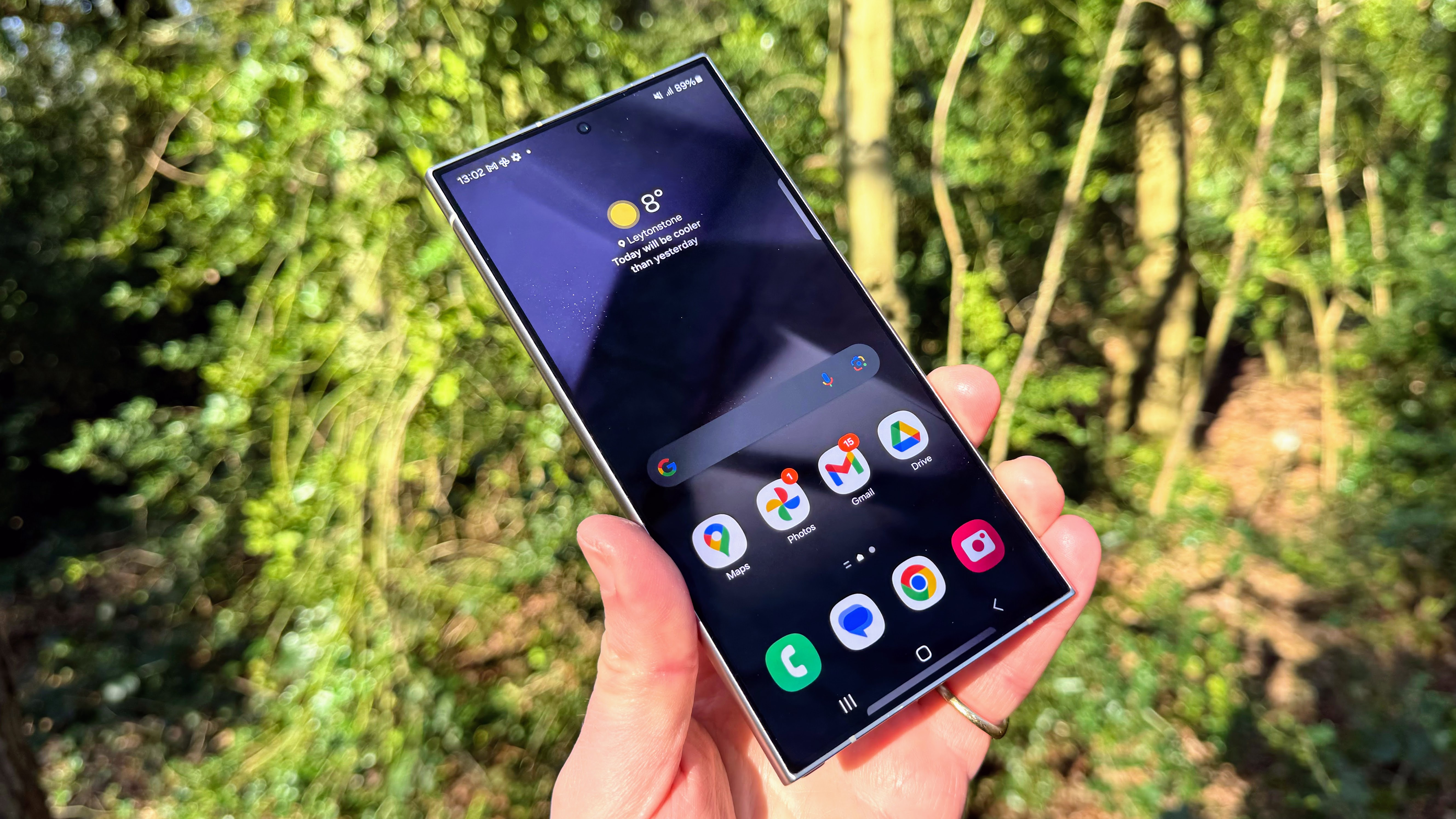
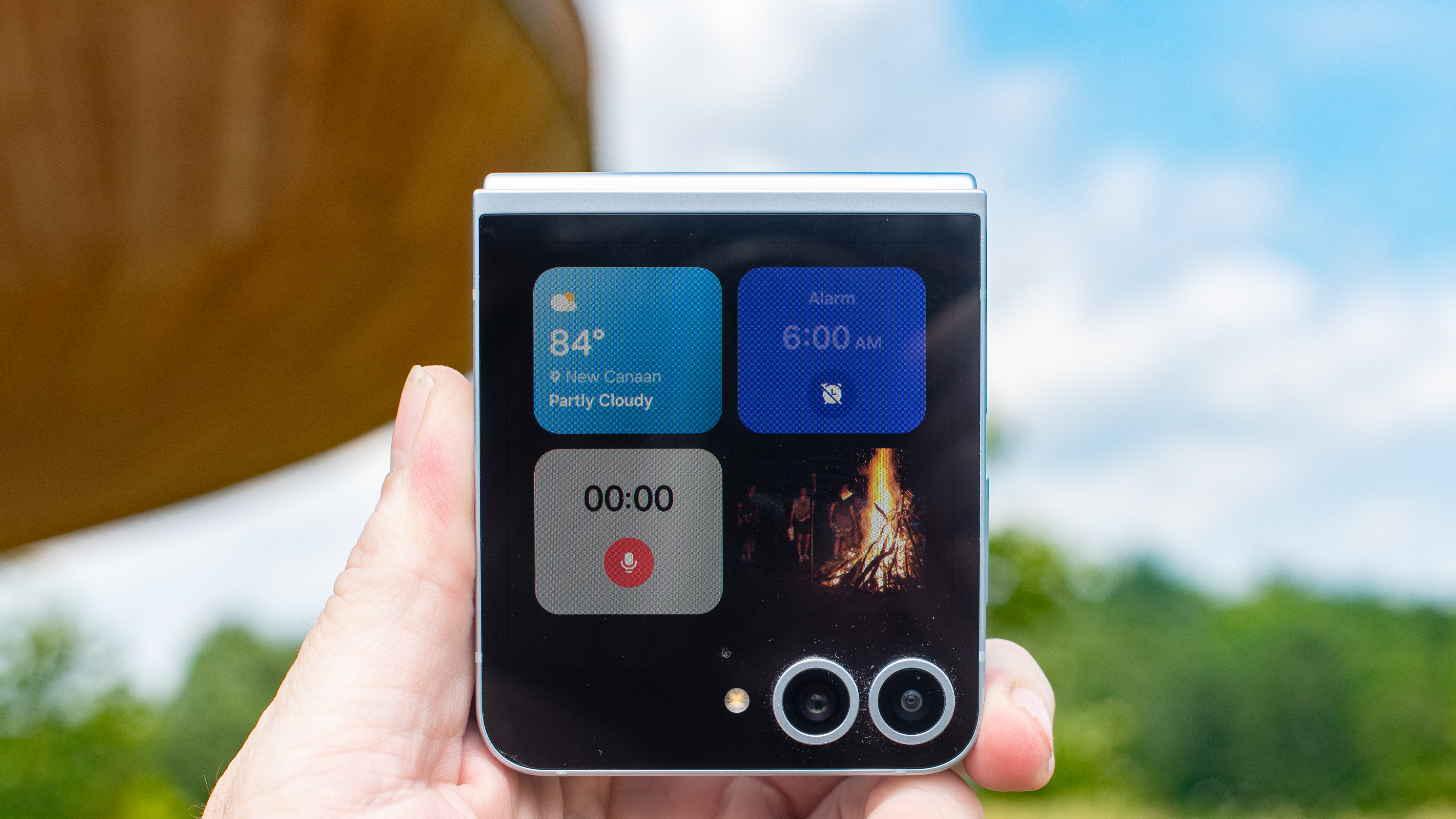
You’re getting two displays with the Flip 6, and just the one with the S24 Ultra. The main deal with the Galaxy Z Flip 6 is its fold-out 6.7-inch FHD+ (1080 x 2640) internal AMOLED display with a 120Hz refresh rate.
In our Samsung Galaxy Z Flip 6 review, our reviewer said that “The Galaxy Z Flip 6 display is very nice, but it’s not the nicest screen you’ll find on a smartphone”. That title might very well go to the Galaxy S24 Ultra, with its big and sharp 6.8-inch 1440 x 3120 (QHD+) Dynamic LTPO AMOLED 2X display.
Both main displays can hit a peak brightness of 2600 nits in peak conditions, which means localized areas in HDR content.
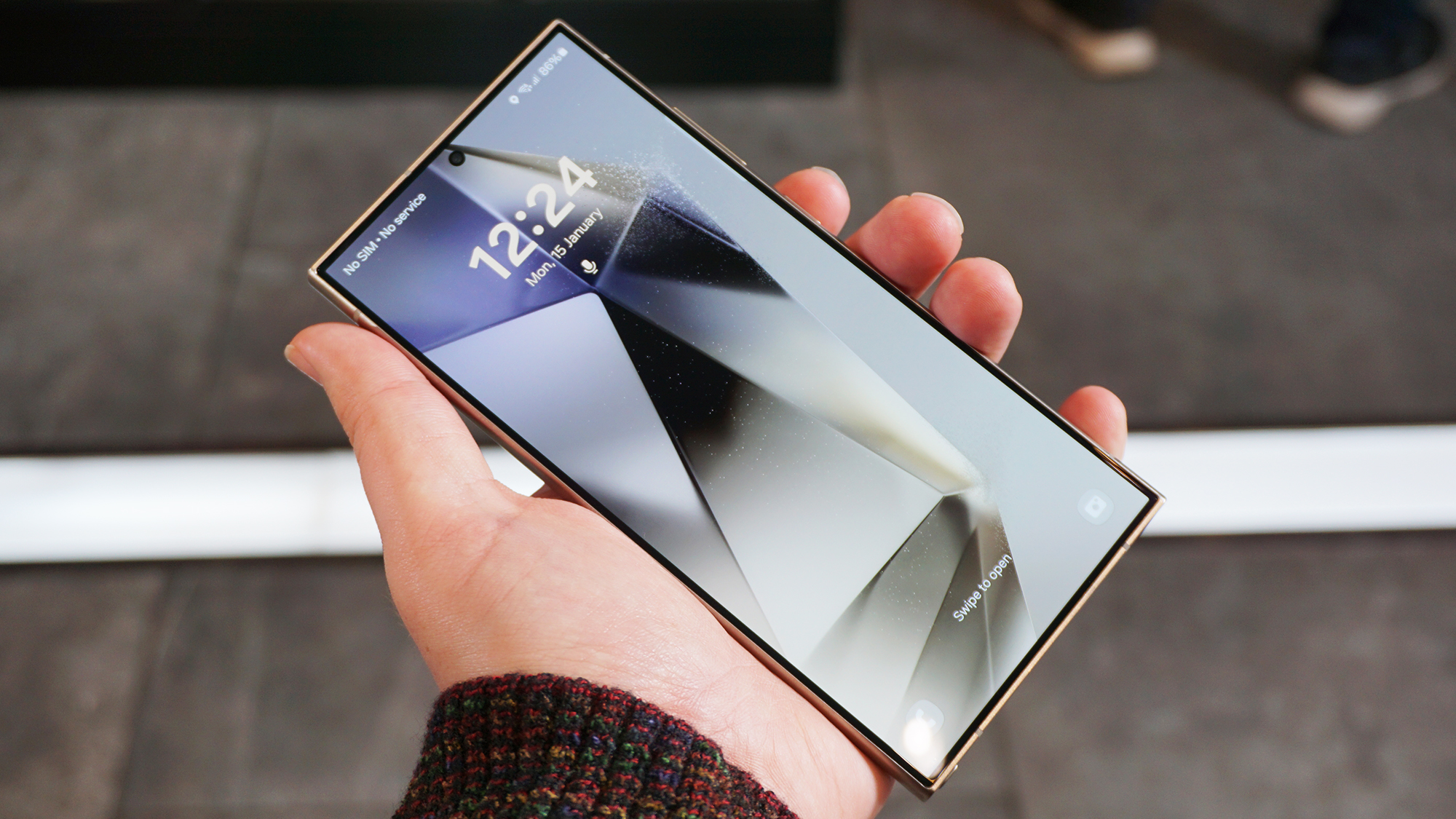

There’s a secondary display to consider with the Galaxy Z Flip 6. At 3.4 inches in size, a resolution of 720 x 748, and a maximum refresh rate of 60Hz, it’s mainly suitable for widgets and basic heads-up notifications while the phone is closed up. Perhaps its best function is being able to serve as a preview screen for boosted selfie shots.
We called this outer screen “a bit conservative” in our review, especially when you compare it to the likes of the Motorola Razr Plus 2024 (aka the Motorola Razr 50 Ultra) – a direct competitor that arguably pushes the whole compact foldable formula further.
The Galaxy Z Flip 6 might have double the number of screens, then, but we’d still say that the Galaxy S24 Ultra wins on pure display quality. Or, to quote our Samsung Galaxy S24 Ultra review, it’s “as good as you’d hope to find on a premiere smartphone”.
Samsung Galaxy Z Flip 6 vs Samsung Galaxy S24 Ultra: cameras
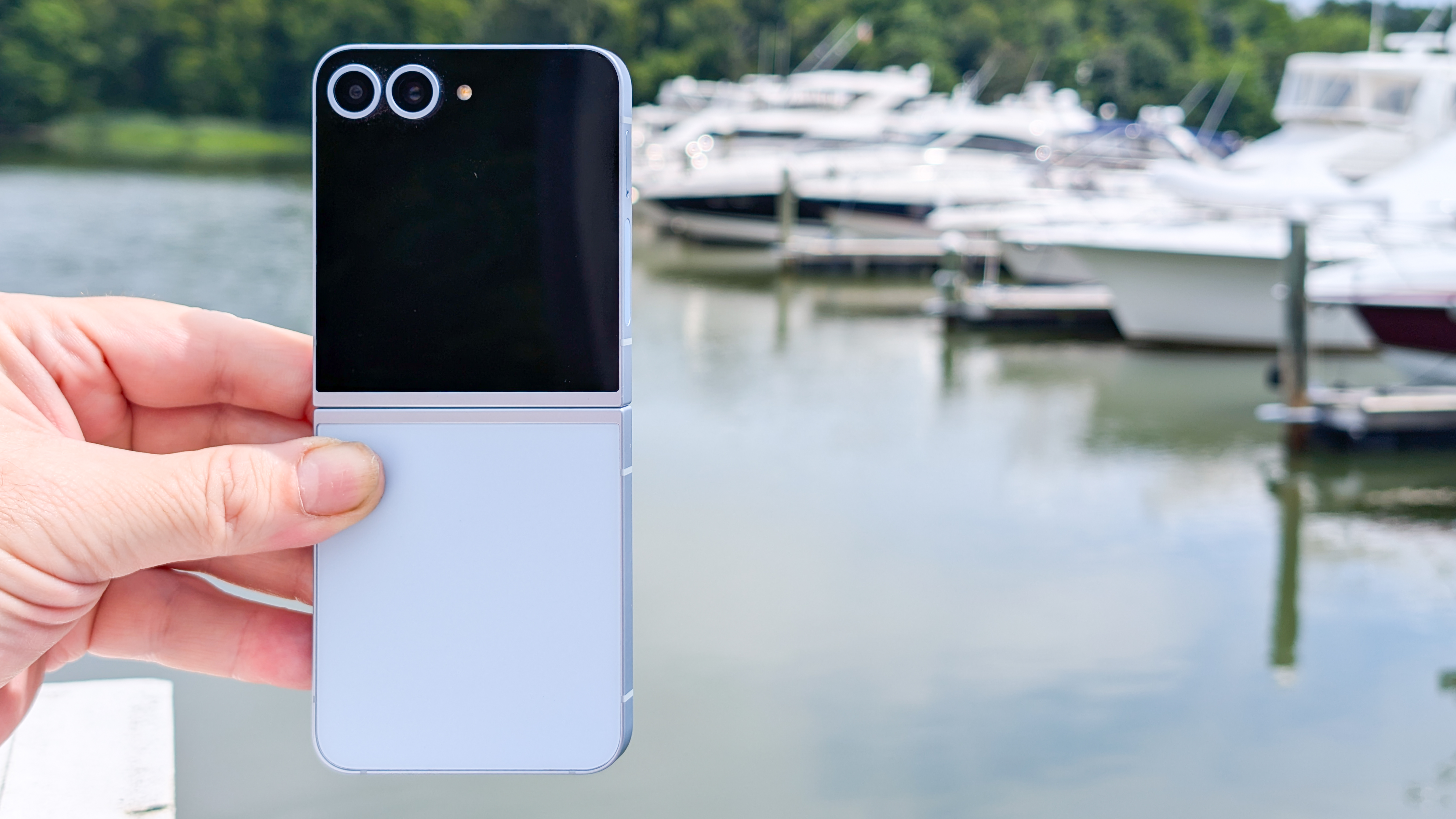
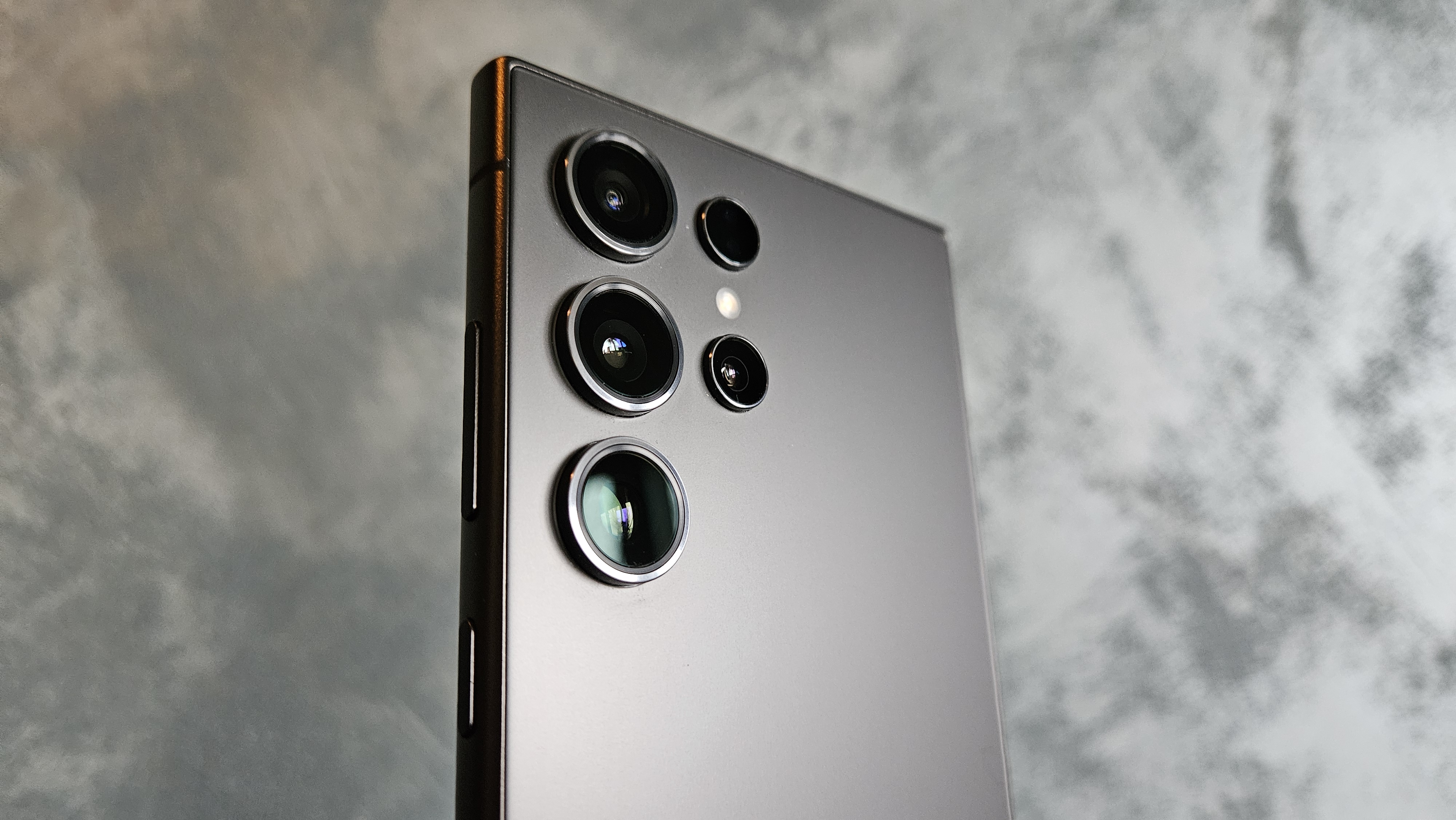
So far it’s been possible to make the case for the Galaxy Z Flip 6 on the grounds that it’s simply different to the hulking Galaxy S24 Ultra. When it comes to the camera category, however, it’s a plain old no contest.
The Galaxy Z Flip 6 has a new and improved 50MP main camera, which is the same as the one you’ll find in the vanilla Galaxy S24. That’s great, but the Galaxy S24 Ultra packs a 1/1.3" 200MP main sensor that’s way better in every way. It’ll capture superior shots in all lighting conditions, but you’ll probably notice the biggest difference when the light drops.
The two 12MP ultra-wide cameras might seem like the same component at first glance, but even here the Galaxy S24 Ultra’s sensor is larger and thus better at scooping up light. It also features autofocus, unlike the Flip 6 variant.
It’s not even a fight in the zoom department, with the Galaxy S24 Ultra having a pair of dedicated cameras (one 10MP 3x, one 50MP 5x) to the Galaxy Z Flip 6’s none. In fact, the Galaxy S24 Ultra has probably the best zoom set-up in the whole industry.
Even the selfie cam is better on the S24 Ultra: a 12MP sensor with autofocus compared to the Flip 6’s 10MP fixed focus. Where the Flip 6 wins a rare victory is with the aforementioned capacity to use the main camera and that cover screen to capture superior selfies. It’s still a little fiddlier than a regular selfie, but it works.
On the video front, the Galaxy Z Flip 6 tops out at 4K and 60fps, while the Galaxy S24 Ultra can go a stage further to 8K and 30fps. Naturally, those superior sensors and a more advanced autofocus provision make for better footage whatever the resolution.
Samsung Galaxy Z Flip 6 vs Samsung Galaxy S24 Ultra: performance and software
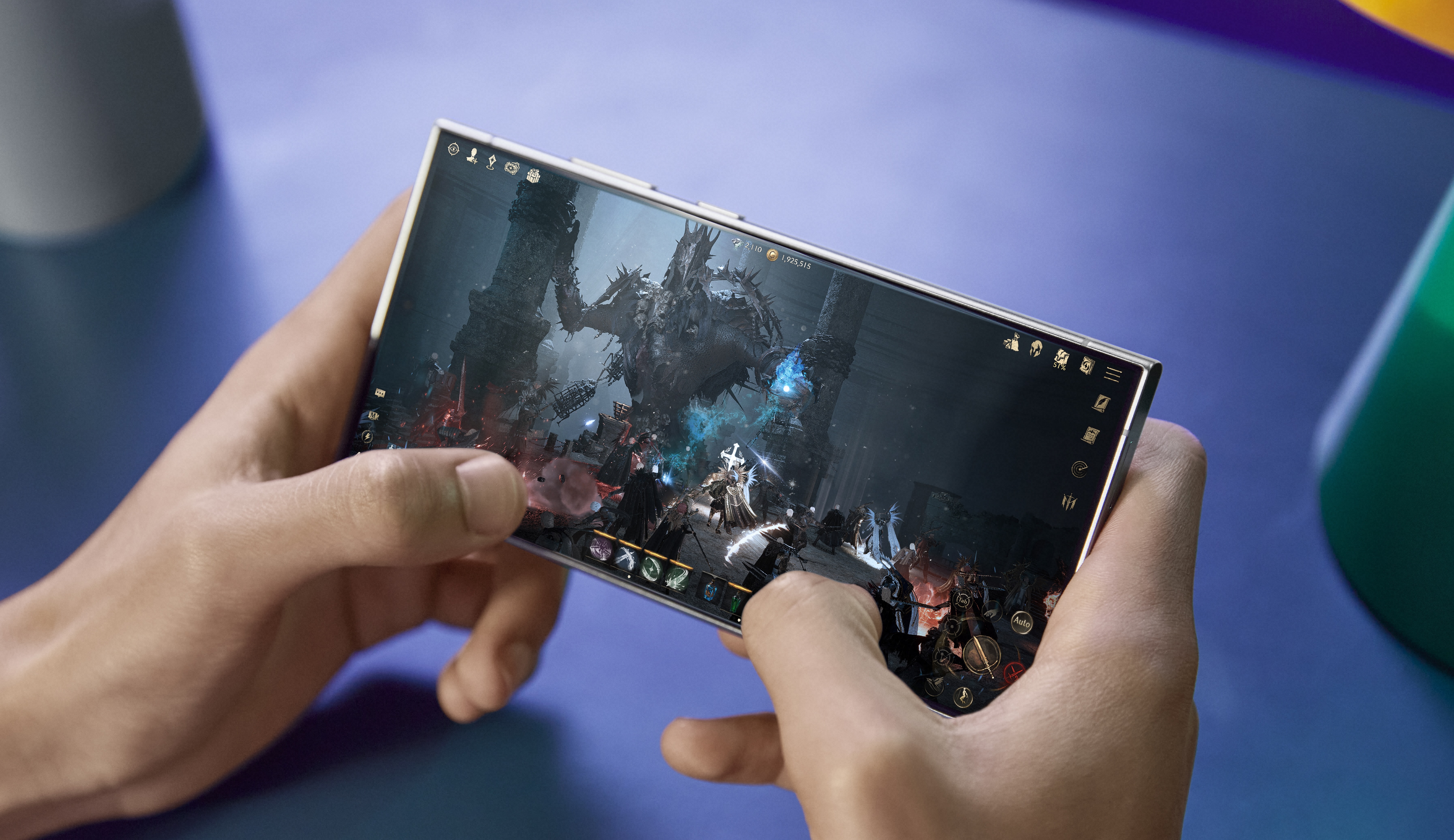
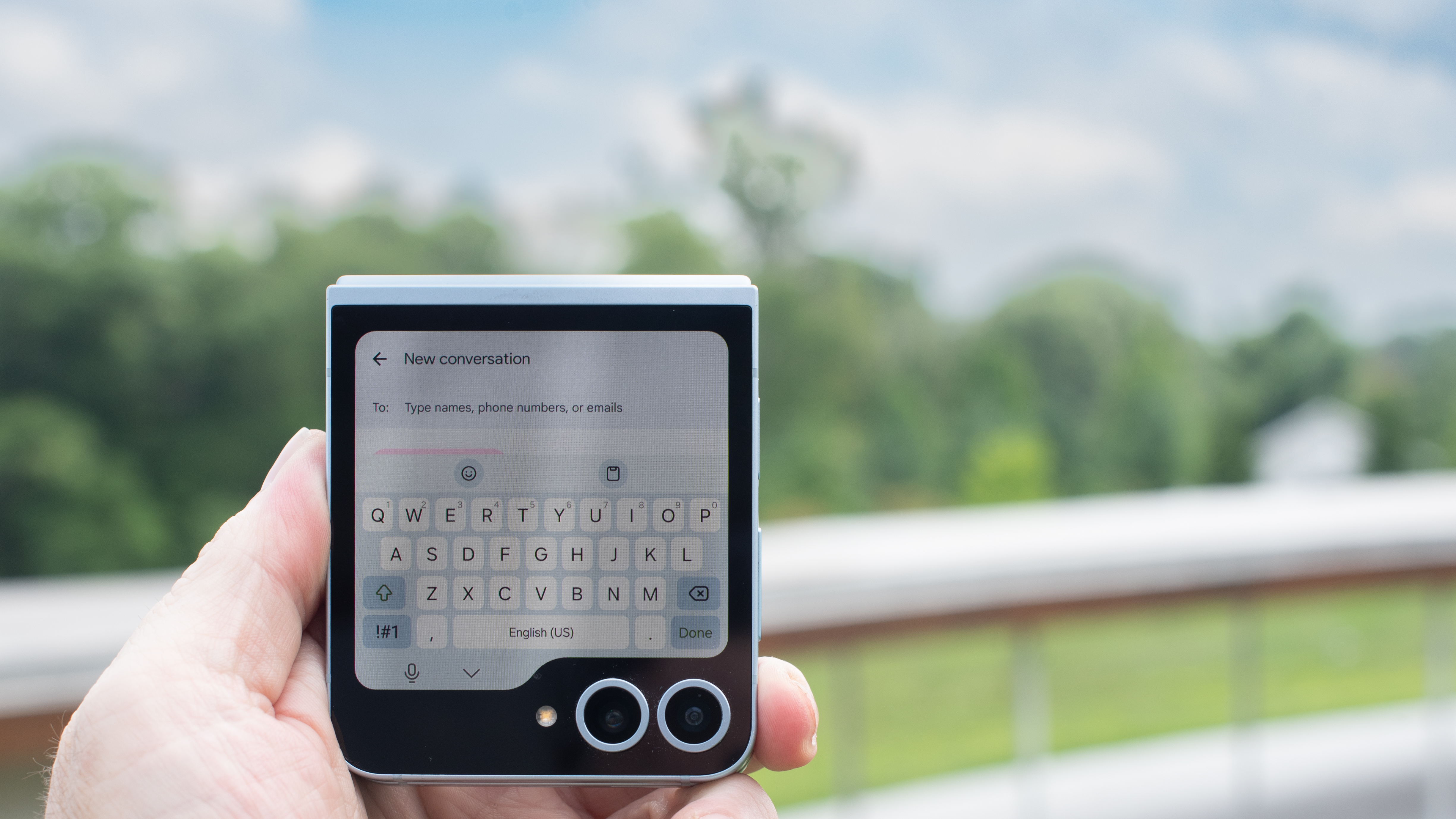
Both of these phones run on Qualcomm’s Snapdragon 8 Gen 3 for Galaxy, which is a slightly overclocked variant of its off-the-shelf chip. Both also feature 12GB of RAM.
It’s a tie on paper, then, and both phones performed fluidly in our tests. The Galaxy S24 Ultra probably still has a bit of an edge at the very top end, such as when running high-end games for extended periods, thanks to its meatier cooling system, but most people are unlikely to notice the difference.
In terms of storage capacities, both give you 256GB and 512GB options. However, the Galaxy S24 Ultra also supplies a 1TB option, which will be ideal for those who still like to keep all their media files close to hand, or shoot loads of 4K and 8K video.
It’s broadly even on the software front. Both phones run Samsung’s own One UI 6.1 slathered on top of Google’s Android 14, and both get the same seven-year software update promise.
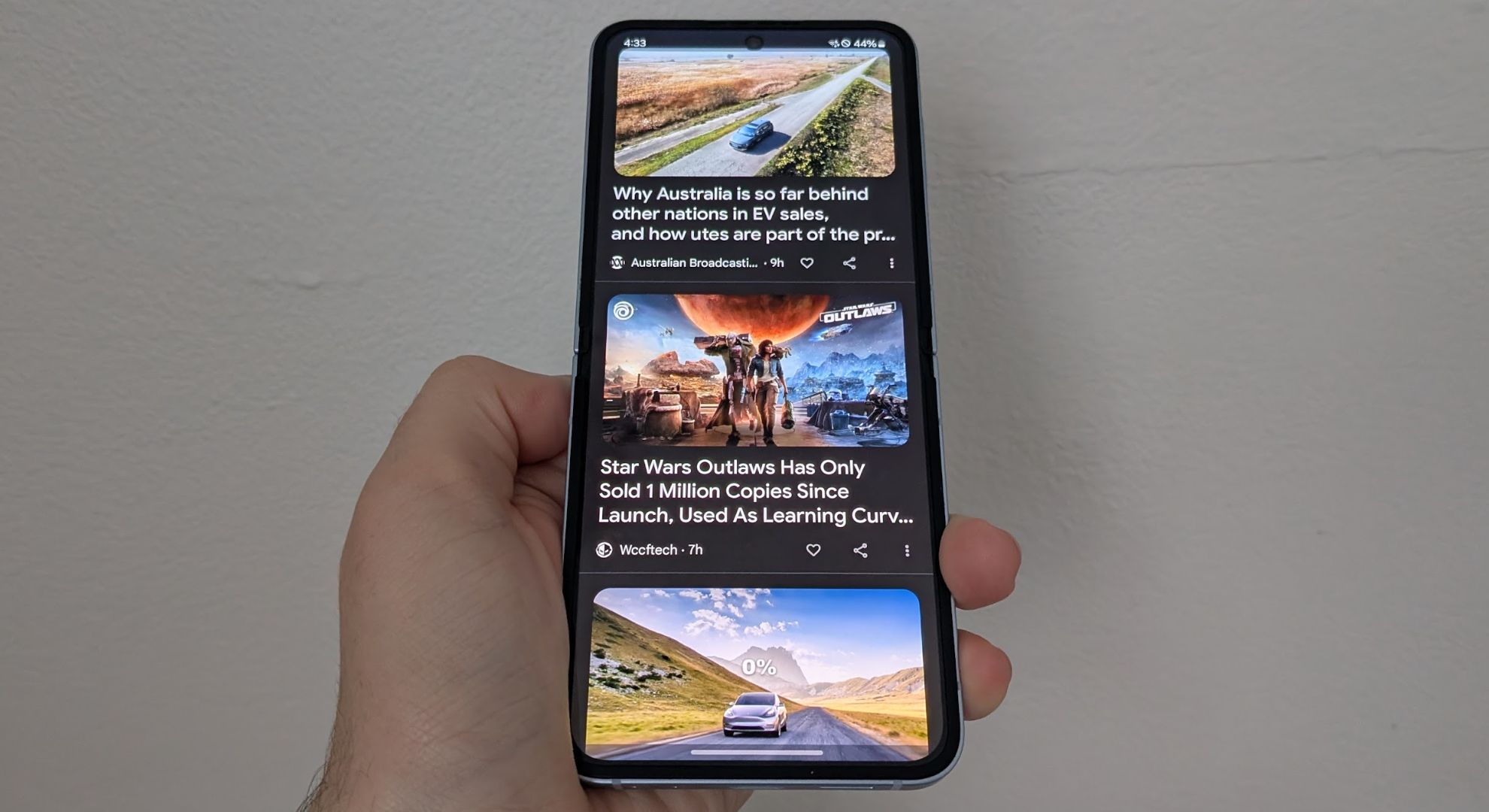
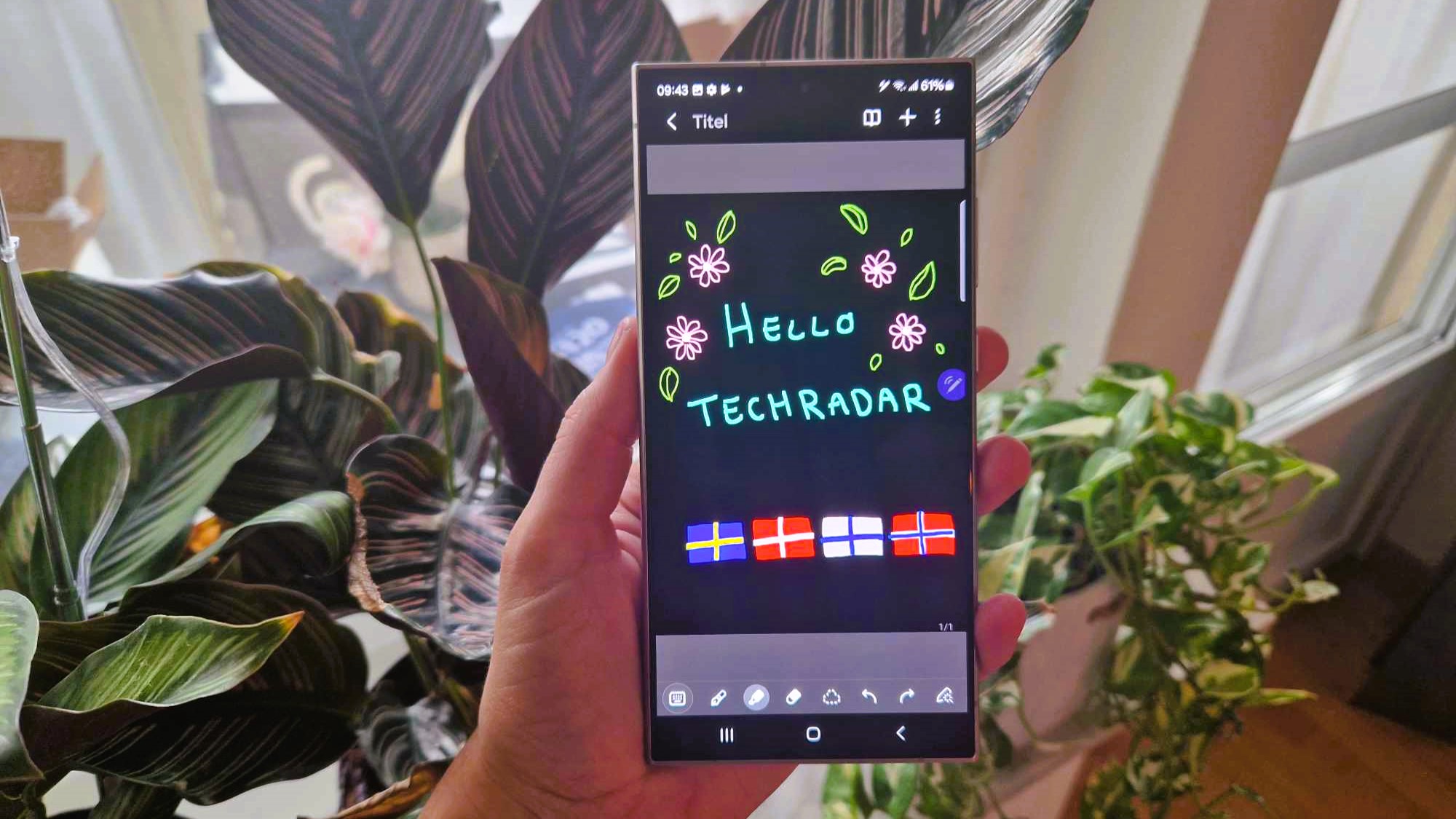
This is the year of AI for Samsung, with both of these phones capable of pulling off a number of clever tricks. Whether you’re removing photobombers from your snaps, grabbing real time transcriptions or translations of conversations, producing bespoke wallpapers, or having your crude finger-sketches turned into works of art, these are two of the most AI-capable phones on the market.
The Galaxy Z Flip 6 does make use of its second screen to offer two-way AI translated conversations, which is something the Galaxy S24 Ultra can’t do.
Conversely, the Galaxy S24 Ultra comes with an S Pen stylus, and all of the software implementation that entails. It still feels like magic having your hand-written notes transformed into digital text.
Also missing from the Flip 6 is DeX support, which on the Galaxy S24 Ultra lets you turn your phone into a lightweight desktop computer.
Samsung Galaxy Z Flip 6 vs Samsung Galaxy S24 Ultra: battery
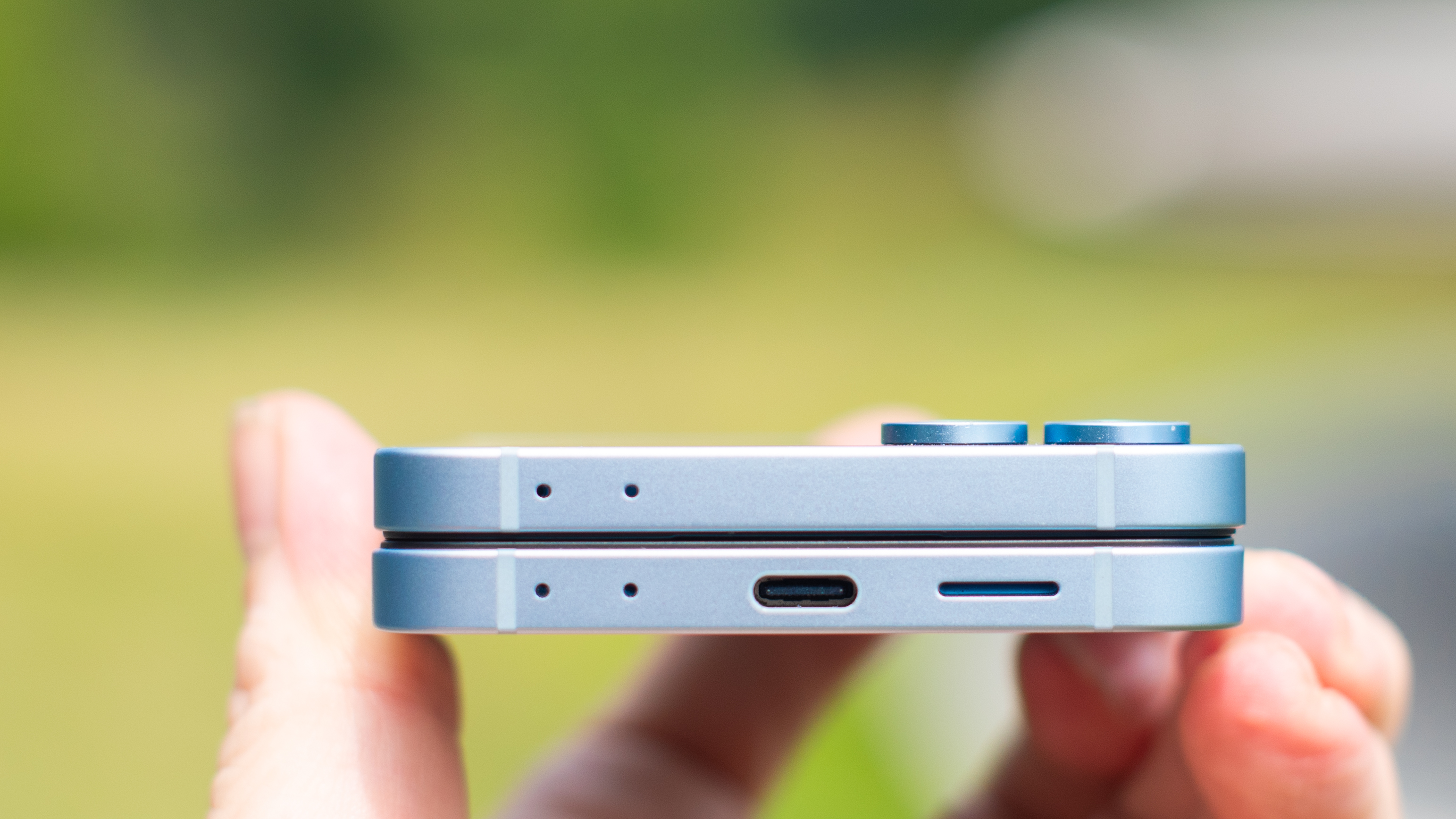
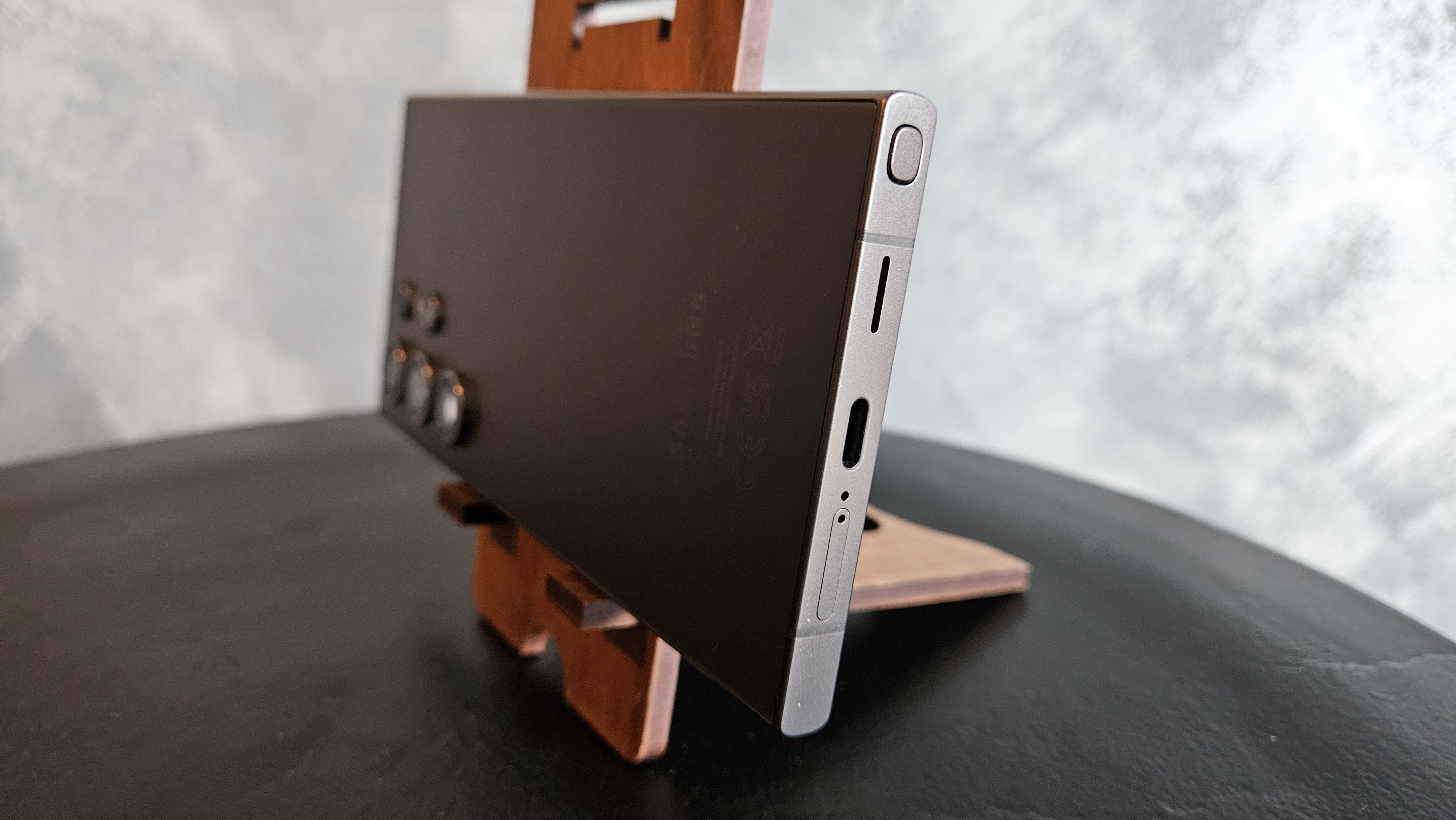
If you’ve been paying attention, you might have spotted that making a foldable means less internal space for things like bumper cooling solutions. More consequentially, it also means that you can’t fit in such a large battery.
Sure enough, the Galaxy S24 Ultra’s 5,000mAh cell dwarfs the Galaxy Z Flip 6’s 4,000mAh unit. The end result is that we were slightly disappointed with the Galaxy Z Flip 6’s stamina, while we found the Galaxy S24 Ultra to be one of the longest-lasting phones on the market.
The S24 Ultra will last you hours longer, and will easily get you through a full day of intensive usage. The Flip 6, by contrast, is only really good for a day of moderate usage.
There’s a difference in the wired charging provisions too, with the Galaxy S24 Ultra supporting 45W and the Galaxy Z Flip 6 supporting 25W. Given the difference in battery capacities, it doesn’t make for a huge difference in charging speeds, and neither phone is especially swift.
Both phones support 15W wireless charging.
Samsung Galaxy Z Flip 6 vs Samsung Galaxy S24 Ultra: verdict

If you’re taking things point for point, there’s a very obvious winner here. The Galaxy S24 Ultra has a more rugged design, a better screen, a superior camera set-up, and far more impressive stamina than the Galaxy Z Flip 6.
It’s a flat out better phone, as reflected in our respective review scores. However, these devices are sufficiently different in form to prompt a few caveats.
Sure, if you’re after one of the best phones money can buy, get the Galaxy S24 Ultra. But if portability is a priority, your budget only extends to $1,099.99 / £1,049 / AU$1,799, or you’re just bored of plain old smartphones, the Galaxy Z Flip 6 has a lot going for it.







